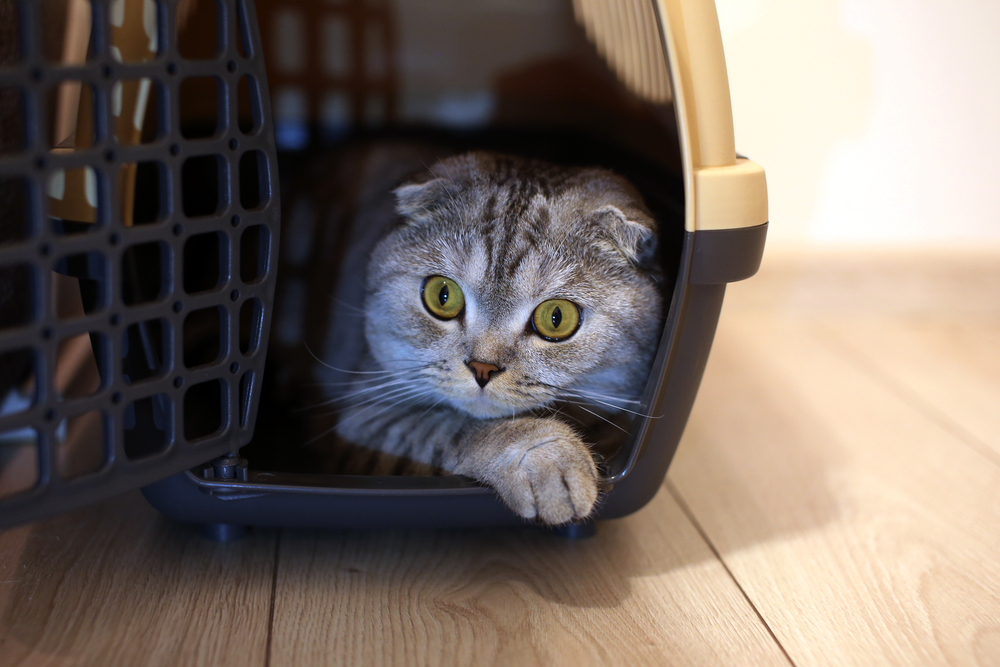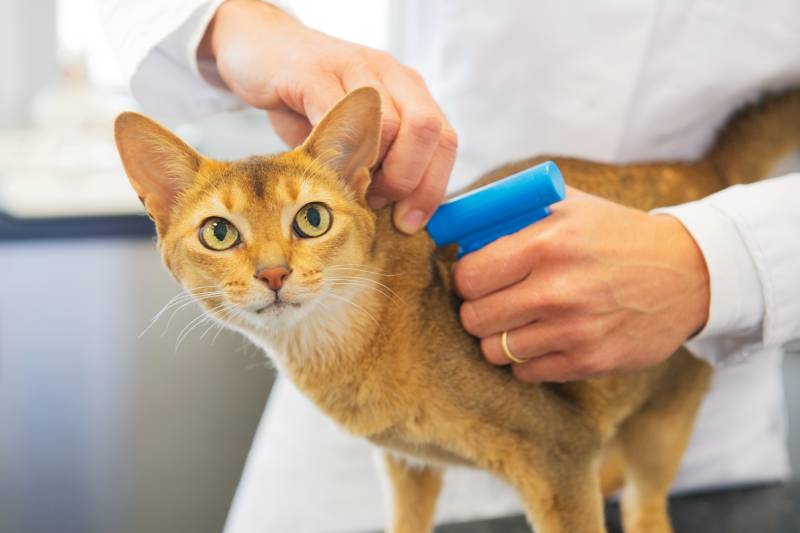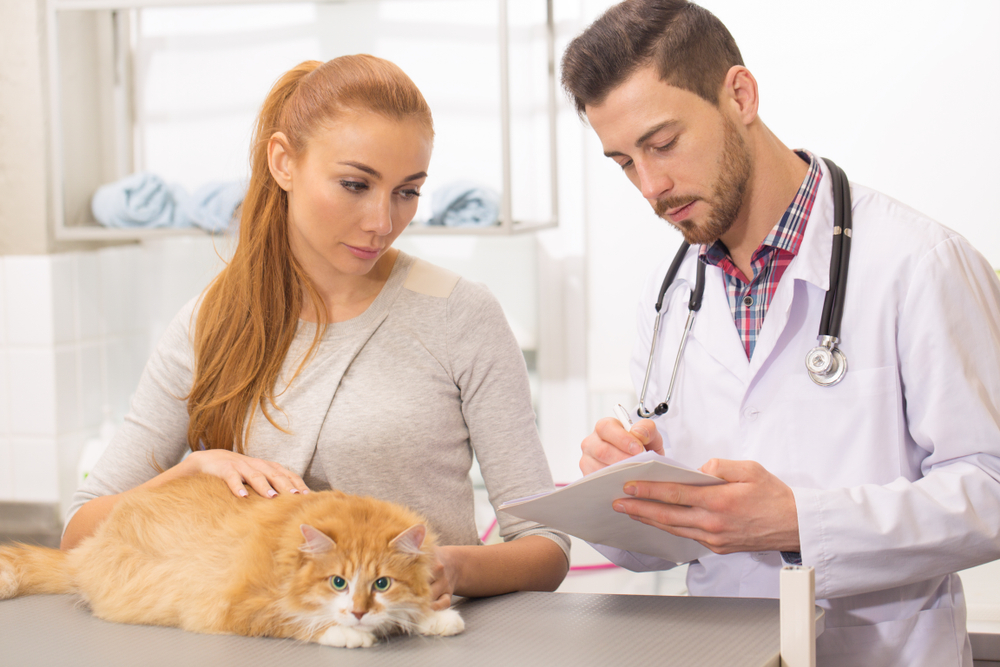Hurricanes are difficult to deal with for anyone, but if you’re a cat parent, you have extra work to do to prepare for a hurricane. Not only do you need to ensure that you have all the supplies you need for yourself and your family, but you also need to guarantee you have anything your cat may need so you’re best prepared to care for your pet during a weather emergency. There’s much to remember to do to prepare your kitty for a hurricane!
That’s why we’ve put together this step-by-step guide that will tell you everything you need to prepare your cat for a hurricane. We have you covered, from the supplies you’ll need for them to steps you should take before a hurricane hits. Keep reading to learn all you need to know!

Before You Begin
There are some steps below that you’ll also want to do before a hurricane arrives, but before you do anything else, get your cat used to its carrier. Carriers often get shoved to the back of a closet and only come out for vet visits, which is what your cat associates them with. And that means your pet may run and hide as soon as they see their cat carrier, which is the last thing you want during a hurricane.
Long before a hurricane gets anywhere near you, start leaving your cat’s carrier out so they can get used to it just as an object. Make it inviting by putting a towel or blanket in it, and consider sprinkling catnip or placing kitty’s favorite toys inside, as well. This slow acclimation to a cat carrier might not work for all felines, but it can go a long way to making the cat less frightened of the carrier and more willing to get inside it during an emergency.


Step-by-Step Guide for Readying Your Cat for a Hurricane
Here’s your step-by-step guide for ensuring your pet is well-prepared in a hurricane!
1. Have your cat microchipped.
While cats without microchips can often find their way back to their families if they get separated, those with microchips are much more likely to be returned to their owners 1.

Make sure your cat is wearing a collar that contains up-to-date tag identification, including your email or cell number.
3. Check your pet’s vaccination records.
Be sure your pet is up-to-date on their vaccinations, and you have proof of this. Proof of up-to-date vaccinations is often required if you need to evacuate and find a place to stay with your pet. It’s advisable to keep this proof in a watertight container or laminate it so it doesn’t get ruined by water.

4. Think about a possible evacuation.
Research where to evacuate before the hurricane hits. If you have friends or family outside flood zones, that’s excellent. If not, you’ll have to do research, as some hurricane evacuation centers won’t accept pets, so you’ll need to know where or if pet-friendly evacuation centers are in your area beforehand. If there are not, you’ll want to locate a cat-friendly hotel where you and your kitty can stay. Call ahead to check pet policies (and ask if there are fewer restrictions during a weather emergency) and have a list of hotels and their numbers written down before a hurricane arrives.
5. Have a backup evacuation plan.
If it looks like evacuation may be likely and you can’t locate pet-friendly accommodations, you might also want to consider finding a vet, boarding facility, or shelter capable of keeping animals in the event of a hurricane. Any place you are thinking of boarding your cat should be located outside flood zones and should have a backup generator.
If you have to evacuate, take your pets with you! You never want to leave your pets behind during an evacuation, as you have no way of knowing how long you’ll be away from the house. Plus, if your home is damaged or floods, your cat could be in severe danger.

6. Consider evacuating early.
You might not want to wait for an evacuation order to go ahead and evacuate. Felines typically aren’t fans of long car rides, so getting stuck in traffic while everyone is trying to evacuate at the same time will prove to be a terrible experience for you and your pet. Evacuating before everyone else means you can get to your destination a bit quicker and save your pet some trauma.
7. If you stay at home, secure it.
Not evacuating? Then, make your home as safe as it can be. Keep everyone in an area of the house that’s the safest, block off any nooks or crannies a scared kitty could try to hide in, move any items that could be dangerous to your pet, and bring any outdoor cats inside.

8. Prepare a disaster kit for your cat.
What should go in this disaster kit? Food and water for 5–7 days, food and water bowls, medications, vaccination records, litter box, litter, scooper, a pet first aid kit, your cat’s carrier, favorite toys and blankets, and photos of your pet in case you get separated. Put this kit together ahead of time and keep it with your own go bags.

Final Thoughts
There’s a lot to do to prepare your favorite feline for a hurricane, but this step-by-step guide will help you prepare your cat in case of emergency. The most important things to remember are to prepare everything long before a hurricane hits and to keep up-to-date vaccination records handy. A hurricane can be scary for everyone involved, but the steps above will help keep you in control so things are less frightening!
See Also:
- Train Your Kitty to Walk with a Cat Harness and Leash
- What to Do With Cats After a Natural Disaster? 8 Vet Reviewed Tips After a Hurricane
Featured Image Credit: Irina Kozorog, Shutterstock



















